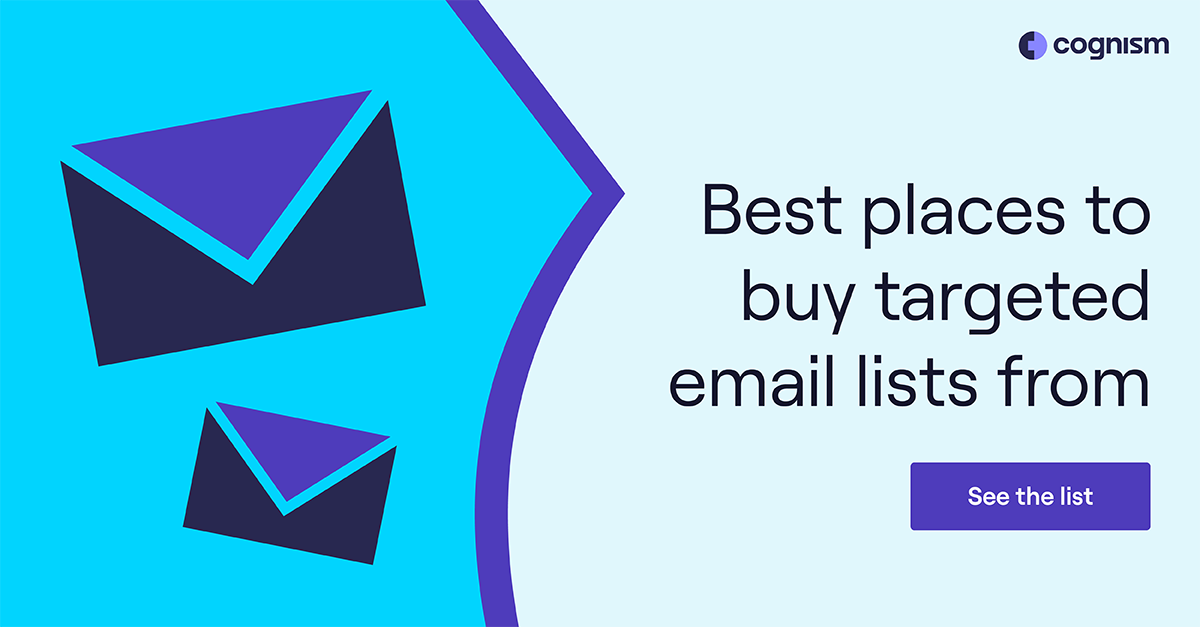New News To Selecting A Hematologist Email list
Wiki Article
What Do I Need To Consider When Buying What Should I Consider When Purchasing A Family Medicine Email List?
To reap the maximum benefits from your outreach and marketing campaign, you must take into consideration several crucial elements. The most important thing to think about is 1. Quality of data and accuracy
Data source: Ensure that the data provider collects information from reliable and verified sources. These include licensing bodies, medical directories professional associations, opt-in database. Email addresses for family medicine doctors' addresses should be relevant up-to-date and tailored to the audience you are targeting.
Verification procedure: Find out the provider's verification procedure. Unusual or inactive emails must be deleted and the email list regularly updated. Validated email addresses can decrease bounces and enhance deliverability.
Segmentation Options: The list of options should allow for segmentation according to criteria such a geographical location, the number of the number of years in practice, the size of a practice or specific areas (e.g., pediatrics, geriatrics, and preventive medicine). Segmentation facilitates more targeted and targeted outreach, which improves the rate of engagement.
2. Legal Regulations
Data Privacy Laws: Ensure the list complies with General Data Protection Regulation (GDPR) in Europe, California Consumer Privacy Act (CCPA) in the U.S., and other relevant laws regarding data privacy. To avoid any regulatory penalties emails must be collected legally.
Compliance with the CANSPAM Act If you're running email marketing campaigns within the U.S.A., ensure that the list of recipients is in compliance with the CANSPAM Act. It is essential to offer clear opt-out options, and avoid using false subject lines or other information in your emails.
Opt-In Consent : Verify the email addresses we have collected were acquired through consent. This means that physicians who do family medicine have given their consent to receiving marketing messages.
3. Provider Reputation
Reputable Provider: Choose one that has a long track record of delivering high-quality and reliable information. Look for testimonials, reviews and case studies written by customers to determine the provider's credibility and reliability.
Transparency: The service provider must be transparent regarding how the data was collected and how frequently it is up-to-date. If the company doesn't know what sources they can use to obtain their data, that's an alarming indicator.
Customer Support - Look for firms that provide strong customer support. It is possible that you require assistance with technical issues, list segmentation or ensuring the list complies with the rules.
4. Costs and Returns on Investment (ROI).
Pricing Models. Different pricing options are available from companies, including flat fees, pay-per-contact, or subscription services. Choose a pricing structure that aligns with your budget, while also ensuring an excellent return on investment.
Refund Policy and Replacement Policy. The most reliable companies offer refunds or replacements for invalid or outdated email addresses. Make sure you understand any clauses in the policy prior to purchasing.
Cost-effective: Don't look at the costs. A lower-priced mailing list might seem attractive however it could result in a low delivery rate or an excessive bounce rate. A quality list will give better targeted advertising, better engagement rates and a better return on investment.
5. Data Ownership and Usage
Single Use or. Clarify if you can utilize it more than once, or just once. Lists with several campaigns can be more beneficial particularly if your outreach is ongoing.
Exclusive vs. Shared lists: Find out if the list belongs to you solely or is being sold to other buyers. Lists that are exclusive to you will less likely lead to crowds that are too saturated and usually will result in better engagement rates.
6. Data Format and Integration
CRM Compatibility. Make sure that your email list is in the format that works with your CRM system or marketing tool (e.g. CSV, Excel). This makes it easy to integrate and is user-friendly.
Ease of Use: Ensure that the list is well-organized and simple to sort or segment according to the criteria important for your campaign. This will allow you to streamline your message and targeting efforts.
7. Ethical Questions
Relevance: Family physicians are often very busy, so ensure that your outreach is relevant for their practice. Avoid generic or irrelevant messaging, as this could harm your reputation as a brand and lead to low engagement or spam complaints.
Avoid Spam practices - Send emails with care, and avoid sending overdo it with emails. If you send recipients a flood of irrelevant emails or excessively, it could lead to unsubscribes, complaints about spam and a tarnished reputation.
Conclusion
If you purchase an email database through Family Medicine, ensure you pay attention to the quality of data, legal conformity, and reputation of the company to ensure success in your marketing efforts. Look for data that has been filtered and verified to be compliant to privacy laws as well as being in tune with your audience. By investing in a high-quality list and delivering relevant marketing messages can help you increase engagement rates and maximize the return on investment. View the best family medicine email list for blog recommendations.

What Factors Should I Be Thinking About When Buying An Urgent Care Email List?
It's crucial to think about a number of factors when purchasing an email list to provide urgent treatment. This will help ensure that the list you purchase is accurate and compliant with the law and appropriate to the goals of marketing. The most important considerations are: 1. Quality of data and accuracy
Source of Information: Make sure the data is collected from reliable sources like medical associations, databases for healthcare or professional directories. Beware of lists that are generated through scraping data or using untrusted methods that could include incorrect or outdated data.
Verification Process: Confirm the address list has been checked and maintained regularly. A trustworthy supplier will use a rigorous validation process to remove invalid or outdated email addresses. This improves deliverability and reduces bounce rates.
Segmentation of Lists: The lists can be classified according to the following elements locations (city/state/region) as well as the size (e.g. urgent care centers are small), specialties provided (e.g. diagnostics and pediatrics), as well as the roles taken on by decision-makers. Lists with a specific focus can increase the outreach of your organization and improve engagement.
2. Legal Regulations
Data Privacy Laws : Ensure your list complies the relevant law on data protection like in Europe the General Data Protection Regulation, in the U.S. the California Consumer Privacy Act and any other local regulations. This means that email addresses must be collected with proper consent and processed in a legal manner.
Conforming to the CAN-SPAM Act: Marketing email campaigns within the U.S. are required to be in compliance with the CANSPAM act. This means providing a clear opt-out mechanism, avoiding untrue subject lines, as well as include your physical address in email messages. Non-compliance can lead to penalties and damage to your brand's reputation.
Opt in Consent : Check that the email addresses listed on the list have explicit opt-in consent. In other words, the recipients have agreed for the receipt of marketing emails from third parties. This will reduce the possibility of complaints about spam and legal concerns.
3. Provider Reputation
Establish Provider: Choose one that has proven track records of providing top-quality, reliable email lists. Check the testimonials, case studies and reviews from previous clients to gauge the service's satisfaction.
Transparency. Providers should be transparent about how their the data is collected, and when they update it. If the company isn't able to provide the exact details of how they gather data, it could suggest that their data is poor quality.
Customer support is crucial If you need assistance in a technical issue, customization of your list or even compliance, strong customer service is crucial. A customer-friendly service will help you maximize the value of your email database.
4. Cost and return on investment (ROI).
Pricing models. Email list companies typically provide different pricing options, including flat charges or pay per call. Consider the price model and your marketing budget. Think about the cost and quality of your product.
Refund or Replacement Policy: A lot of trustworthy providers will provide an option for either a refund or replacement in the event that you discover that a significant amount of your emails are invalid. Clarify the policy terms before buying.
Value for money - Instead of choose the cheapest solution take a look at lists that contain precise information or an elaborate segmentation. Investing into a list of high quality will increase engagement and yield a higher return on investment.
5. Use and Ownership of Data
Single-Use or Multi-Use? Clarify whether you are able to use this list for one campaign or a number of times. Lists that can be used multiple times offer greater value, especially if they will be used for continuous outreach efforts.
Exclusive vs. shared lists: Find out whether your list is exclusive or shared. Lists shared with others can cause lists fatigue because recipients might receive numerous marketing messages. Engagement rates will decline.
6. Data Format and Integration
Compatibility with CRM: Check whether the list of emails you send out is delivered in an email format that is compatible with the Customer Relationship Manager (CRM) or an email platform. It could be CSV or Excel. This will ensure smooth integration of your campaigns.
Ease in Use Ease of Use: Email lists must be simple to manage and segment in accordance with particular parameters. Personalization and targeting can be more effective if you have an organized and well-organized list.
7. Ethical Questions
Relevance and value of content: Urgent caregivers are busy professionals, so the content you send out should be useful and relevant. Your messaging should be tailored to their specific needs. This might include medical equipment, healthcare technology or other supplies closely linked to urgent care operations. Inadequate messages could damage your reputation and decrease engagement.
Be aware of how often you send emails. Unsolicited emailing or excessive emailing can lead to spam complaints, and damage your reputation as an emailer.
Conclusion
Be sure to consider the accuracy of the data, the legal compliance and the reputation of the company you choose to purchase an email list for urgent assistance. It should be categorized. It must also be updated regularly and comply with data privacy laws. If you invest in a top-quality targeted, well-targeted lists and delivering relevant content, you will maximize engagement and achieve a strong return on investment. See the most popular urgent care email list for site guide.
